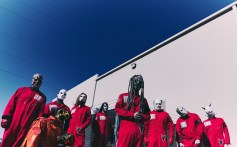Publishing
Trending on Billboard
Xposure Music, a Canadian catalog firm focused on mostly independent artists, said on Monday it secured $42.5 million in debt financing from billionaire hedge funder David Tepper‘s Andalusian Credit Partners and private investors.
Xposure co-founders and co-CEOs Ryan Garber and Gregory Walfish said they have signed over 100 deals with independent and some major label artists worth between $10,000 and $4 million since starting Xposure in 2021. Their firm’s total funding now tops $50 million and includes support from equity investors including Garber’s father, former Cirque du Soleil chairman and a minority owner of the Seattle Kraken Mitch Garber.
Related
In recent years, the billions invested by global asset managers and private equity firms to acquire the rights to music’s most popular songs has prompted smaller investors to exploit their specialized genre knowledge and industry connections to acquire music IP in a niche category.
Major funds doing this include Beyond Music, which acquires K-pop and evergreen Asian music catalogs, Cutting Edge Media, which owns media music rights used by the film, TV and wellness industries, and Duetti, which also buys master recordings and publishing rights from independent artists.
“Our goal is to continue to serve as the gateway for emerging artists to access meaningful funding and take their careers to the next level, and this investment gives us the resources to make that possible,” Garber said.
Xposure’s Walfish tells Billboard the initial idea was to create a platform for artists to submit music, pay a fee and be guaranteed that their music would be heard by a record label. While they had early success — signing up nearly 25,000 artists and 200 record label executives — Walfish said it led them to discover that what artists really needed was financing for future projects. Xposure pivoted to catalog acquisitions and other financing options in November 2023. Walfish says Xposure’s acquisition deals with artists are flexible, with Xposure buying entire catalogs of master recordings, publishing rights and writer’s share in perpetuity, or fractions of the artists’ rights to albums or individual songs. Xposure also offers term advances.
“More options for artists are better because they are not forced to take a crazy record deal, and in our underwriting and due diligence, we see some crazy deals,” Walfish says. “Music has become a great asset class recognized by a lot of people, but … this is peoples’ life work that they’re entrusting you with. We want to build relationships with the artists we work with.”
With this new financing, Xposure aims to selectively expand their portfolio holdings and catalogs in new genres like Latin and K-Pop, to further develop their in-house valuation tools, and explore more strategic partnerships, like the one they have with indie distributor Too Lost. That partnership, announced in October, will help accelerate distribution of the catalogs Xposure has rights to and help it acquire new ones, the company has said.

Specialist music publisher Dynamite Songs has acquired certain rights and royalty streams from singer-songwriter Eric Turner, R&B producer and songwriter John “$K” McGee and electronic music creators TIEKS and Dan Harkna.
The three deals add nearly 150 tracks to Dynamite’s portfolio, including Tinie Tempah’s multi-platinum hit “Written In The Stars,” Avicii’s “Broken Arrows,” TIEKS’s summer anthem “Sunshine” (feat. Dan Harkna), and Trey Songz’s standout “Neighbors Know My Name” from his Grammy-nominated album Ready.
Specifically, Dynamite has acquired the publishing and songwriting rights, along with global publishing and performance royalties, for selected works from the Turner and McGee catalogs, while its deal with TIEKS and Harkna is understood to be limited to the track “Sunshine.”
Turner is best known for co-writing and performing on “Written In The Stars” (see below) and collaborating with Avicii on “Dancing in My Head” and “Broken Arrows.” McGee helped shape modern R&B with tracks like “Neighbors Know My Name” and cuts for Jacquees. TIEKS and Harkna created “Sunshine”, a global dance hit boosted by Fiat’s 500 campaign and BBC Radio 1 support.
These acquisitions mark the latest phase of Dynamite’s expansion since its May launch, bringing its actively managed catalogue to around 1,200 works. The deals follow Dynamite’s earlier acquisitions of works tied to Ed Sheeran and Kendrick Lamar.
“What excites me most about these latest deals is how clearly they embody what Dynamite stands for – selective, high-quality acquisitions of music that truly matters,””” said Alan Wallis, CEO of Dynamite Songs. “With around 1 billion total streams between them, these catalogues have consistently demonstrated their commercial strength. We’re deeply grateful to John, Eric, Mark and Dan for entrusting us with these incredible works. As our robust pipeline of potential deals continues to expand, we look forward to partnering with even more creators who share our passion for timeless music and value our artist-first approach to dealmaking.””
Check out the rest of this week’s publishing news below, including Mushroom Music’s sub-publishing partnership with peermusic, 1916 Enterprises signing Chance Emerson, Karma Artists and Payday Music Publishing signing Benji, and Reservoir Media linking up with reggae publisher Abood Music.
Mushroom + Peermusic
Image Credit: Mary Megan Peer (credit: Melody Rae)

Trending on Billboard
In the third quarter of 2025, Sony Music Publishing scored a three-peat as the No. 1 publisher on both the Top Radio Airplay and Hot 100 Songs charts for the first three quarters of 2025.
This time around, Sony received a boost from having the top song on both charts, Alex Warren’s “Ordinary,” and the No. 1 songwriter on both charts, Shane “sombr” Boose, who wrote and performed “undressed,” which was No. 7 and No. 22 on Top Radio Airplay and Hot 100 Songs, respectively. (Sony administers sombr for Songs of Orchard.)
Related
They were two of the 75 songs that Sony had on Top Radio Airplay in the third quarter, up from 73 in the second quarter. The publisher had stakes in 69 tracks on the Hot 100 Songs chart, down from 75 in the prior quarter. For both rankings, its market share was down slightly from the second quarter, from 30.90% to 30.76% on Top Radio Airplay and 33.88% to 30.10% on Hot 100 Songs.
Meanwhile, Warner Chappell Music held the No. 2 spot on both rankings for a second consecutive quarter, with 23.67% on Top Radio Airplay and 22.32% on Hot 100 Songs. Both shares were improvements on the publisher’s second-quarter shares of 21.66% and 21.57%, respectively. And while its song count improved from 62 to 64 on Top Radio Airplay, its tally fell from 57 to 52 on Hot 100 Songs. Warner Chappell’s top track on both charts was also “Ordinary.” In addition, Warner Chappell was the No. 1 publisher on the Top Country Radio Airplay list.
Universal Music Publishing Group ranked at No. 3 on both charts, with its Top Radio Airplay market share sliding from 16.79% to 14.79% and its Hot 100 Songs share dipping from 18.56% to 16.62% quarter to quarter. UMPG held stakes in 46 songs on Top Radio Airplay, down one from the second quarter, and its top track was Shaboozey’s “Good News,” which ranked at No. 2. On Hot 100 Songs, its count improved from 50 to 52, with its top track, “Golden” by HUNTR/X from KPop Demon Hunters, also ranking at No. 2.
Kobalt and BMG alternated at Nos. 4 and 5 on both charts, finishing in that order on Top Radio Airplay with 11.24% and 5.28% of the pie and swapping places on Hot 100 Songs: BMG finished fourth with 12.75% — a massive increase from its 3.24% second- quarter share — and Kobalt was fifth with 8.83%.
Kobalt’s song count improved on both charts, growing to 42 in the third quarter from 39 in the prior pro quarter on the Top Radio Airplay list and to 35 from 32 on the Hot 100 chart. Its top song on the former was “Good News,” while its top song on the latter was Morgan Wallen’s “What I Want” featuring Tate McRae, which ranked at No. 3. BMG also had “Good News” as its top performing song on the Radio Airplay list, where its song count fell to 14 tunes from the second quarter’s 16 songs; while on the Hot 100, its song count improved from the second quarters’ 32 songs to 35, with “Golden” as its top song.
Looking at the bottom half of the Radio Airplay publisher rankings, three publishers returned from the second quarter: Big Machine, which moved up to No. 6 from No. 10 last time with a 1.75% share; Concord, which fell one position to No. 8 but improved its market share by 13 basis points to 1.40%; and Position Music, which fell one spot to No. 9 but enjoyed a bigger 18-point basis surge to 1.39%. The top song for both Big Machine and Concord was Russell Dickerson’s “Happen To Me,” which ranked at No. 10, while Position’s Music top performing song was Benson Boone’s “Sorry I’m Here For Someone Else,” which finished at No. 6.
In the third quarter, two publishers that were absent from the Q2 rankings made the top 10: Spirit Music, with a 1.46% share from three song placements on the chart, including its top performing song, Scotty McCreery’s “Bottle Rockets” featuring Hootie & the Blowfish, at No. 20; and Me Gusta Music with a 0.96% share and three song placements on the chart with Luke Bryan’s “Country Song Came On” as its top performer at No. 34.
In the bottom half of the Hot 100 ranking, only two publishers repeated from the second quarter: Position Music and Concord. The former came in at No. 6 with a 1.64% share, the same ranking as the prior quarter; while the latter finished at No. 7 with a 1.07% share, up from No. 10 last quarter. Position’s top song was Benson Boone’s “Beautiful Things” at No. 14, while Concord’s top tune was Sabrina Carpenter’s “Manchild,” at No. 4.
Meanwhile, three publishers that were absent from last quarter’s Hot 100 rankings appeared in the top 10 this quarter. Coming in at No. 8 was Spirit Music with a 0.63% share, with McCreery “Bottle Rockets” featuring Hootie & the Blowfish its top song at No. 40. In ninth place with a 0.55% share was Big Machine, whose top song, Morgan Wallen’s “What I Want” with Tate McRae, placed at No. 3. And in tenth place, Downtown finished with a 0.51% share on the strength of its sole placement on the Hot 100 ranking, Dareyes de La Sierra’s “Frecuencia,” which was the No. 85 song on the tally. Of the three, Spirit had the highest song count with five placements, while Big Machine had a stake in three of the quarter’s Hot 100 songs.
**Methodology: For the Top 10 Publishers Top Radio Airplay chart, percentage calculations were based upon the overall top 100 detected songs from 3,133 U.S. radio stations electronically monitored by Mediabase 24 hours a day, seven days a week during the period of July 1 to Sept. 30. For Top 10 Publishers Hot 100 Songs, percentage calculations were based upon the top 100 songs ranked by Billboard Hot 100 points calculated from digital sales, streaming and Mediabase-tracked radio airplay detections during the period of June 27 to Oct. 4 and reflecting the issue dates of July 12 through Oct. 4. Publisher information for musical works on both charts has been identified by the Harry Fox Agency. A “publisher” is defined as an administrator, copyright owner and/or controlling party.**
Previous Quarter:
Related
Trending on Billboard
Primary Wave Music announced on Tuesday (Nov. 18) that it has acquired a stake in both the publishing copyrights and master recordings of jazz icon Dave Brubeck through a major partnership with Derry Music Company. The partnership also grants Primary Wave a share in licensing Brubeck’s name, image and likeness, with the company collaborating closely with the Brubeck family on future creative decisions.
According to the company, it will leverage its marketing and publishing infrastructure to amplify Brubeck’s legacy through branding initiatives, digital campaigns, synch placements and film and television projects. Financial terms were not disclosed.
Related
“The Brubeck family enjoys a rare position in the musical world as we have inherited an exceptional legacy,” the family said in a statement. “Our father, Dave Brubeck, was a world figure known for his talent, originality, international diplomacy, and decency. We are thrilled about our new partnership with Primary Wave, whose innovative team will enable us to further extend the appreciation of our parents’ musical and humanitarian heritage.”
Brubeck’s cerebral style transformed West Coast jazz in ways that remain unparalleled. Forming the Dave Brubeck Quartet with alto saxophonist Paul Desmond in 1951, the World War II Army veteran helped usher cool jazz into the mainstream with groundbreaking college tours and albums like Jazz at Oberlin and the on-the-nose Jazz Goes to College.
By the end of the decade, the iconic quartet featured Desmond, drummer Joe Morello and bassist Eugene Wright — the lineup behind Brubeck’s 1959 landmark album Time Out. The record, which opens with “Blue Rondo à la Turk” and includes the iconic “Take Five,” shattered conventions with its daring time signatures and became the first jazz album to sell over a million copies. (It went double platinum in 2011, according to the RIAA.)
Today, Time Out stands alongside albums like Miles Davis’ Kind of Blue and John Coltrane’s A Love Supreme as one of jazz’s defining works.
This quartet, which recorded for Columbia, also produced such classic albums as 1961’s Time Further Out and 1963’s The Dave Brubeck Quartet at Carnegie Hall. His later work included collaborations with baritone saxman Gerry Mulligan and various projects with his children Darius (electric piano), Chris (bass), Matt (cello) and Dan (drums).
Beyond his musical innovations, Brubeck was a staunch advocate for racial integration, famously canceling performances at venues that refused to welcome Wright, who was Black. His six-decade career earned him the Kennedy Center Honors, the National Medal of Arts, eight Grammy nominations and a Grammy Lifetime Achievement Award before his passing in 2012 at the age of 92.
“I’ve worked on dozens of acquisitions for Primary Wave in the 15 years I’ve been with the team, but this one is personal,” said Primary Wave’s John Luneau. “Dave Brubeck and his classic Quartet were my first musical idols – three years before the Beatles! – and remain so still. It’s the honor of my career to help bring about this brilliant marriage of Dave’s musical genius with Primary Wave’s skill at preserving and expanding the legacies of iconic artists.”
Related
Primary Wave noted it will continue to pursue iconic jazz catalogs, having recently struck deals with Pat Metheny, the late Chuck Mangione, and previously partnered with the Count Basie estate.
The deal comes on the heels of Reservoir Media’s acquisition of Miles Davis’ publishing catalog, signaling a renewed industry focus on preserving jazz’s greatest legacies.
Trending on Billboard
HarbourView Equity Partners and Grammy Award-winning artist and producer Hit-Boy have joined forces in an exclusive partnership. Following the conclusion of Hit-Boy’s 18-year publishing agreement with Universal Music Publishing Group, the new alliance finds HarbourView collaborating on forthcoming titles written by Hit-Boy. Transaction terms were not disclosed.
In announcing the news, HarbourView founder and CEO Sherrese Clarke stated, “At HarbourView, we are committed to investing in the creators who shape culture and are actively moving it forward. Hit-Boy’s work has defined a generation of music, blending innovation with impact in a way few others have. We’re honored to partner with him and proud to help preserve, celebrate and continue his extraordinary legacy.”
Related
“This next chapter of my career is about ownership, being innovative and my creative freedom,” added Hit-Boy. “HarbourView will be a forward-thinking partner and that is exactly what I want when making decisions about my catalog and my future.”
Hit-Boy’s extensive catalog, amassed over nearly 20 years, encompasses collaborations ranging from Kendrick Lamar and Nicki Minaj to Ariana Grande and Doechii. Among the producer’s biggest hits are Jay-Z and Kanye West’s “N***as In Paris,” Travis Scott’s “Sicko Mode” with Drake, Beyoncé’s “Flawless” and the late Nipsey Hussle’s “Racks in the Middle.”
Three-time Grammy winner Hit-Boy also executive produced Nas’ Grammy-winning King’s Disease as well as the rap icon’s Magic Trilogy. His two other Grammy wins were for best rap song (“N***as In Paris”) and best rap performance (for his guest feature alongside Roddy Ricch on Hussle’s “Racks in the Middle”).
Related
As an artist, Hit-Boy’s most recent album is Goldfish with fellow producer The Alchemist. The project is complemented by a short film directed by Abteen Bagheri and executive produced by Hit-Boy, who also stars in the short with The Alchemist. Others featured in the film include Danny Trejo, Rory Culkin and rappers Big Hit, Conway the Machine and Lefty Gunplay.
HarbourView Equity Partners was established in 2021. Specializing in the sports, media and entertainment arenas, the investment firm’s music portfolio includes artists and producers such as Kelly Clarkson, T-Pain, Rodney “Darkchild” Jerkins, Luis Fonsi, Fleetwood Mac’s Christine McVie, Wiz Khalifa and Kane Brown, among others.
Trending on Billboard
Ashley Gorley and Shaboozey won top honors at the 2025 ASCAP Nashville Songwriters Celebration, with Gorley winning ASCAP country music songwriter of the year for a record 12th time. That’s more times than anyone has won songwriter of the year at an ASCAP awards celebration in any genre.
Related
ASCAP celebrated the winners at an invitation-only party on Monday (Nov. 17) in Nashville. ASCAP chairman of the board and president Paul Williams, ASCAP CEO Elizabeth Matthews, ASCAP executive vp and head of creative membership Nicole George-Middleton and ASCAP vp of Nashville membership Mike Sistad handed out awards.
Among ASCAP’s most-performed country songs of the year, penned by Gorley, are “Fix What You Didn’t Break” (Nate Smith), “I Am Not Okay” (Jelly Roll), “Liar” (Jelly Roll) and “Park” (Tyler Hubbard). In June, Gorley was inducted into the Songwriters Hall of Fame.
Shaboozey received the ASCAP country music songwriter/artist of the year honor. In addition to his “A Bar Song (Tipsy)” earning ASCAP’s country music song of the year, his “Good News” (co-written by Sean Cook) is also among ASCAP’s most-performed country songs of the year.
“A Bar Song (Tipsy)” was co-written by Sean Cook, Jerrell “J-Kwon” Jones, Joe Capo Kent and Mark “Tarboy” Williams. It was published by Sony Music Publishing, Essancy Music, Seeker Music, Range Music Publishing, Tarpo Music Publishing, Hood Hop Music, Kreshendo and Warner Chappell Music. The song topped the Billboard Hot 100 for 19 weeks, tying Lil Nas X’s “Old Town Road” (featuring Billy Ray Cyrus) as the longest-running No. 1 song in Hot 100 history (which dates to 1958).
Additionally, “A Bar Song (Tipsy)” won a CMA Award for single of the year, a Billboard Music Award for top country song and top-selling song, and a Brit Award for international song of the year. Shaboozey is nominated for new artist of the year at Wednesday’s CMA Awards and recently received Grammy nominations for best country solo performance, best country duo/group performance and best country song.
Sony Music Publishing is the ASCAP country music publisher of the year. Among their awarded titles are “A Bar Song (Tipsy)” for the second consecutive year, “Fix What You Didn’t Break” (Nate Smith), “Hard Fought Hallelujah” (Brandon Lake, Jelly Roll), “Good News” (Shaboozey), “Cowboys Cry Too” (Kelsea Ballerini, Noah Kahan), “Coming Home” (Old Dominion), “Country House” (Sam Hunt), “I Am Not Okay” (Jelly Roll), “4x4xU” (Lainey Wilson) and “Love You, Miss You, Mean It” (Luke Bryan).
The ASCAP writers and publishers of the most-performed Christian music songs also received their awards at the celebration.
A complete list of ASCAP country music winners can be found at the ASCAP site.
Trending on Billboard
Spotify and the National Music Publishers’ Association (NMPA) have joined forces to create a new opt-in license for NMPA members to enter into a direct license agreement for “expanded audiovisual rights” in the U.S., according to a press release about the deal. NMPA members can sign up using a portal, and the deal is said to increase the royalty-earning potential of participating publishers and writers by offering them a new audiovisual royalty stream.
News of the deal comes during a time of great tension between Spotify and the NMPA. In March 2024, Spotify began paying music publishers and songwriters a discounted royalty rate for streams on its premium tiers. Spotify explained that by adding audiobooks to its premium offerings, these subscriptions could be reclassified as “bundles,” a type of plan that qualifies for a discounted rate on U.S. mechanical royalties, given that multiple products are offered under one price tag.
Related
The NMPA and its allies have fought this assertion ever since, spearheading a multi-faceted attack against Spotify soon after. This included the Mechanical Licensing Collective filing a lawsuit against Spotify over the matter, and the NMPA filing a legislative proposal, an FTC complaint and cease-and-desist notices over allegedly hosting lyrics, videos and podcast content that contained their members’ copyrighted works without proper licenses.
This deal, at least, potentially creates a pathway for any alleged unlicensed videos on Spotify to become licensed. According to a source close to the deal, the NMPA does not plan to back down from its other pushes against Spotify, given that this deal does not address bundling.
News of the agreement comes after a series of announcements from NMPA members — including Universal Music Publishing Group, Sony Music Publishing, Warner Chappell Music, Kobalt and their parent companies — each of which came to direct deals with Spotify throughout 2025. Little is known about the nature of the deals beyond what is disclosed in the press release, but each was said to improve remuneration for songwriters and offer multi-year agreements for the companies, often covering both publishing and recorded music.
“This new partnership with the NMPA will increase revenue for songwriters and independent publishers who are the heart of the industry,” says Alex Norström, co-president and chief business officer, Spotify. “We look forward to continuing to work with the NMPA to create new value and opportunities for their members.”
Related
“We are pleased that this deal offers indie publishers the chance to enter into direct deals with Spotify in regard to audiovisual streaming functionality on the platform alongside the recently announced larger publishing companies,” says David Israelite, president and CEO, NMPA. “This new income stream reflects the growing value of songs as digital platforms offer new capabilities to consumers.”
The NMPA Opt-In Portal is open to eligible publishers beginning today, Nov. 11, with onboarding continuing through Dec. 19.
Trending on Billboard Michael Young has been appointed chief information officer of Sony Music Publishing, effective immediately from his base in Nashville. In his new role, which reports to CFO Tom Kelly, Young will lead the company’s global technology strategy and oversee transformation initiatives aimed at enhancing growth, scalability, and operational efficiency for SMP’s songwriters […]
Trending on Billboard Brandon Lake was named ASCAP’s Christian music songwriter of the year on Monday (Nov. 10), while “Praise,” which he co-wrote with Pat Barrett, was named Christian music song of the year. ASCAP’s winning Christian and country music writers will be honored at the ASCAP Nashville Songwriters Celebration on Monday, Nov. 17. Related […]
Trending on Billboard
Over the past few years, the revenue of the organizations that collect and distribute public performance and mechanical royalties have gone up – by a collective 7.2% in 2021, an eye-popping 28.9% in 2022 and then 7.6% in 2023. But the pandemic bust and subsequent recovery boom made it hard to see trends that would shape the future of this part of the business. With the Nov. 6 release of the organization’s Global Collections Report, though, a clearer picture of this part of the music publishing business is starting to emerge.
Revenue from music collections hit 12.59 billion euros ($13.62 billion), up 7.2% from 2023, a rate of growth not so different from the previous year, while revenue from digital sources rose 10.8% to 5.01 billion euros ($5.42 billion). This, too, seems to be falling into something of a pattern: Digital revenue jumped 35.1% in 2022, then 9.5% in 2023. Revenue from live and background music – played at concerts and in places like restaurants and bars – also seems to be settling into a groove. After falling more than 45% during the pandemic, it grew 68.5% in 2022, 21.8% in 2023, and 10.4% last year to 3.38 billion euros ($3.66 billion). Revenue from television and radio climbed 1.2% to 3.42 billion euros ($3.7 billion), after growing 11.8% in 2022 and falling 5.3% in 2023.
Related
Over the past decade, global music collections rose by more than two-thirds – and the mix of revenue has changed significantly. In 2024, revenue from digital sources made up 39.8% of collection organization revenue, while television and radio accounted for 27.1% and live and background music for 26.8%. Digital and live are expected to continue to grow, especially since live revenue in most cases is pegged to concert ticket prices.
Globally, the picture hasn’t changed as fast as some hoped. Western Europe still accounts for almost half the market (47.5%) and revenue there grew 6.6%. Including the U.S. and Canada, where revenue grew 10%, the West accounts for more than 75% of global collections. For years, publishing executives expected significant growth in African and Latin America, but so far it has not lived up to expectations – revenue from Africa grew 10% while that of Latin America rose 3.3%. The latter region’s growth was hurt by a currency decline in Argentina, while growth in Asia was hampered by a slight decline in Japan for the same reason. The standout region for growth was Eastern Europe, which CISAC counts as everything from the former Iron Curtain to Central Asia, where collections grew 17.9%.
These CISAC statistics capture a significant amount of the music publishing business – but not all of it. They include all of the revenue that goes through collecting societies that are CISAC members, most of which operate on a nonprofit or not-for-profit basis, plus private companies like BMI and SESAC. (These numbers do not include GMR, or Global Music Rights, and some other entities.) In most of the world, unlike the U.S., societies collect both public performance and mechanical rights revenue, and these numbers reflect that. CISAC does not currently account for money collected for mechanical rights by the MLC, although that may change next year. These numbers also exclude revenue collected for multi-territory online rights assigned by publishers to ICE and some other European entities. For all those omissions, however, the CISAC report is one of the better ways to get a sense of music publishing.
Related
CISAC is an organization that goes far beyond music – it includes 228 collective management organizations in 111 countries and territories – including those that collect money for the use of audiovisual works, visual art, literature and drama. Much of this non-music revenue comes from Europe, where countries have an array of collecting societies for different media. Music is the biggest source of revenue by far, however, accounting for about 90% of a 13.97-billion-euro ($15.11 billion) total, which was up 6.6% from 2023. Overall, digital revenue for all rights rose by 11.2%.
“This year’s results are testament to the adaptability and resilience of creators’ collective rights management in a rapidly changing environment,” CISAC director general Gadi Oron said in a statement distributed with the report. In the same document, CISAC president Björn Ulvaeus noted that “In 2024, authors’ societies delivered record royalties to creators worldwide. This achievement is a cause for celebration, reflecting the resilience of collective management and the value of creative works in a growing market.”
Oron and Ulvaeus also took the opportunity to issue warnings about the potential threat of generative artificial intelligence. Without proper regulation, AI “risks undermining the very foundation of creative value,” Oron writes in his foreword to the report. So far, he notes, the European Commission’s implementation of the AU AI Act has fallen short of the protections in it, which amounts to “a betrayal” that “underscores the urgency of ensuring that the rights of authors are upheld in practice, not just in principle.”
Related
In his own foreword, Ulvaeus takes a similar tone. A study commissioned by CISAC projected that as much as a quarter of creators’ royalties could be lost without AI regulation as the market for AI-generated content could reach 64 billion euros in three years. “This is value flowing away from the individuals who give culture its meaning,” Ulvaeus writes. “I have urged that creators must be at the decision table, not on the outside looking in.”

 State Champ Radio
State Champ Radio 








